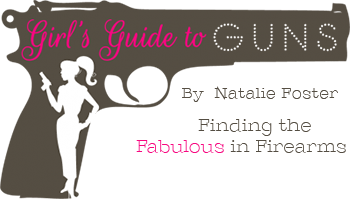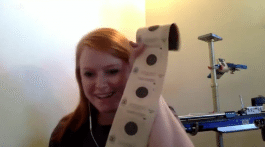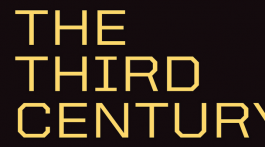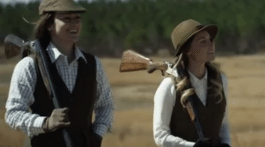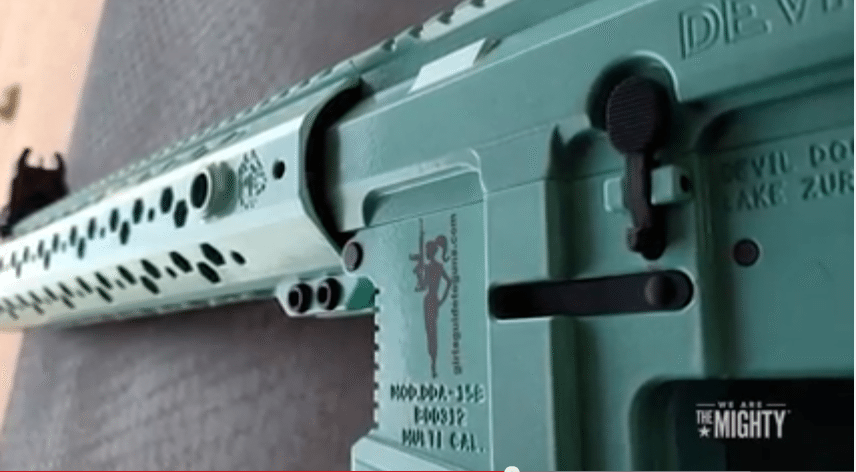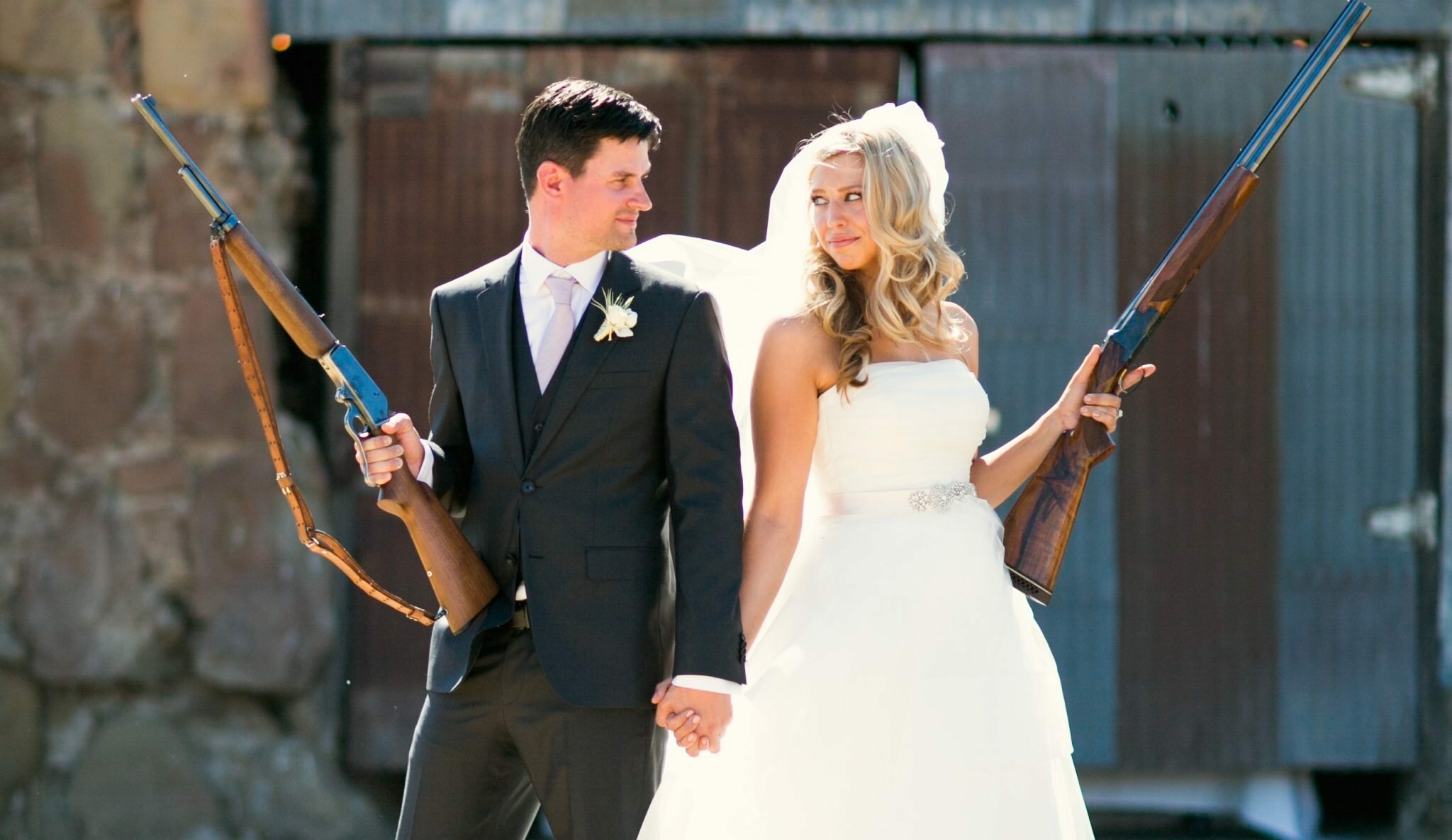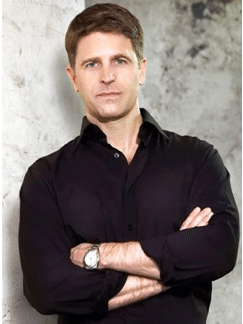
As our loyal readers already know, author Brad Thor is a favorite here at Girl’s Guide to Guns. We find ourselves tempted to camp outside Barnes & Noble in anticipation of his page-turning thriller novels every summer.
This year we’ve received a special treat with his new series released just in time for the holidays about an all-female Delta Force group. Natalie had the opportunity to speak to Brad Thor about his new book, The Athena Project, and much more. Click the links to hear the audio from the discussion. You can also read the transcript of the interview below the audio clips.
-
Brad Thor Audio Interview 1 of 3
-
Brad Thor Audio Interview 2 of 3
-
Brad Thor Audio Interview 3 of 3
NF: It’s Natalie here for GirlsGuidetoGuns.com, and I am beyond thrilled and honored today to host one of my all time favorite authors, the talented and prolific Brad Thor. Hey Brad, thanks for taking the time out of your crazy schedule to chat with me.
BT: Are you kidding me, Natalie? I love Girl’s Guide to Guns. I’m thrilled to be here. Look, the phones are already lighting up here.
NF: Ok, so let’s talk about your book. You’ve recently released your latest page turner called The Athena Project which is perfect for GirlsGuidetoGuns.com. You’ve already hit the New York Times Top 10 Best Sellers. I’ve never been so excited about a book. Seriously, it’s so much fun to read.
BT: Well, you’re very nice. It was a lot of fun to write this book. I’ve been wanting to do a spin-off series for a few years now so what I did– I should start with this: The Athena Project was really hard to research because it’s a thriller but it’s based on real life women. High level athletes that have been recruited to go in to Delta Force. And this is happening. This is a very classified program so there’s little to no information about it out there. I was able to get little pieces here and there. But when I heard about this I said, “This is a great concept for a new thriller.” Sure enough the response has been– I’m incredibly humbled by how wonderful the response has been on this book.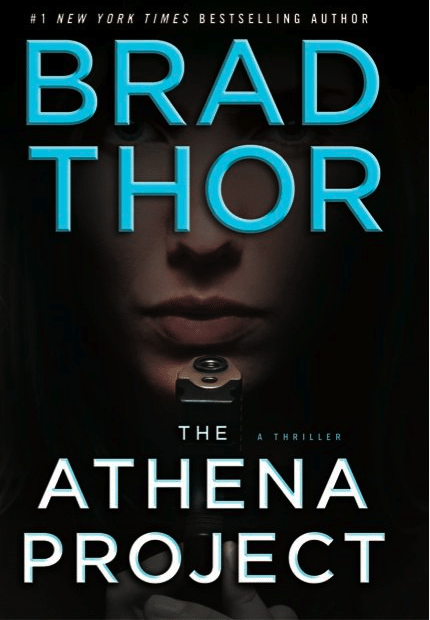
NF: So are you ruffling any feathers by releasing information about the program?
BT: You know what, I try not to. I don’t put anything out there that’s not supposed to be out there. As of yet I haven’t had anybody shake their fist at me and go “THOR! Nobody knew about these women!” Because I did ask a couple of well-placed people– I said, “Am I gonna get anybody in trouble, am I gonna get myself in trouble?” And they said, “ No, you’re not talking about operations. And we’ve now doubled the amount of people that the bad guys are gonna be paranoid about and looking over their shoulders for. So if it keeps some of those chuckle heads on us then good. I’m glad they know we’ve got more people on them trying to hunt them down.”
NF: I know national security is definitely a priority of yours. It’s cool for your to give your average reader a window into that world. It’s something we don’t get any glimpse of. It’s so fun and mysterious. I love it.
BT: It is nice and I’ll tell ya, one of the neat pieces of email I get every once in a while is from an operator who says, “Listen, I’m not gonna tell you who I am, but thank you. You give a voice to those of us who ‘don’t exist.’ Your books are a blast to read. You get it right. This is exactly what our lives are like. What we’re facing, the kind of assignments we’re going on, the kinds of weapons we’re carrying. Thanks for doing your homework and, once again, thanks for giving those of us without a voice, a voice. So that’s kinda neat when you hear from people from the dark side like that. That’s cool.”
NF: That’s an honor, you know?
BT: An incredible honor.
NF: So speaking of weapons, in all of your books that I’ve read so far you’ve got this LaRue Tactical thing going on.
BT: Yes I do! Leander, Texas.
NF: Right, and this Texas girl is a big fan of that. So do you have a relationship with the folks at LaRue or is this what they actually use in the special forces.
BT: Well, both, that’s the answer. It’s kind of a chicken or the egg sort of a thing. I met Mark LaRue through friends of mine in the special operations community. And now Mark LaRue and his beautiful wife Ellen have become dear, dear friends of mine. They’re great people and the stuff that they make is not just for our military. They make it for our citizens as well. They make some of the best tac[tical] equipment out there. It’s just every single thing they touch- they’re probably the best at what the do in the industry. Bar none.
NF: I’m definitely looking forward to picking up a piece of my own soon.
BT: Yeah, you can start with their tactical beverage entry tool, which is a couple of dollars to get bottle caps off of beer bottles and work your way up from there. There’s something for every budget at LaRue.
NF: That’s perfect for the holidays. That’s a great little gift.
BT: And with every purchase Mark puts in a bumper sticker that says “God Bless Our Troops, Especially Our Snipers” and a pocket Constitution.
NF: Wow. That is a patriot right there. Definitely standing up for our second amendment rights, which we’re huge fans of at Girl’s Guide to Guns. Back to your book, rather than me telling the listeners about it, why don’t you give them a synopsis of it, if you don’t mind.
BT: No, happy to do so. The Athena Project is about a team of four female Delta Force operatives who are tasked with taking down and bringing in, if possible, a black market Venetian arms dealer who was involved with a terrorist attack in Rome that killed over 20 Americans and that sets the stage for the book. Their assignment gets complicated very quickly and they discover that there’s a lot more to their assignment than what they were told.
NF: I love that scene by the way. Without giving away too much, only women could pull off the things that you outline in your story.
BT: That’s the whole idea. That’s why Delta Force brought women in. So in the real world, outside of fiction writing, the reason that they wanted to bring women in is that they knew that women could go places and do things that men couldn’t. Automatically their beauty disqualifies them as a threat. So there is a very heavy component of kicking in doors and shooting bad guys in the head but there’s also an intelligence gathering component to what they’re doing. There are a lot of guys out there– if I was sitting at a cafe in Amman, Jordan, if there is a government scientist there or a government military technology developer– there’s only so much he’s gonna tell me even if I can get a bunch of cocktails in him. But if a beautiful woman sits down next to him, you know guys, all of a sudden their heads go to mush. Put a good looking woman next to a guy and he’s gonna want to show off. Maybe he wants to brag about what he’s doing, maybe he wants to show her a piece of technology he’s working on. In real life this is actually going on. So you have this absolutely highly skilled, tier one operator that can take it right to the bad guys with any array of weapons. And then you’ve also got the other side of the coin with them which is full-on espionage and the ability to gather intelligence.
I say in the book, as it’s been said about female operatives, you can give a woman a dog leash and let her go walk around somewhere as if she’s looking for a dog and you’re gonna get guys who wanna help her. You get some muscle bound guy with a short hair cut to go do that and people are gonna be like, “You didn’t really lose a dog, did ya?”
NF: I think you said in the book, too, that a woman sitting in a car with a baby seat in the back can surveil a location a lot longer than two guys sitting there can.
BT: Absolutely. One of the other neat things you can do with these female Delta operatives is instead of sending two incredibly fit guys in as “[missionaries]”– well that might raise a couple eyebrows. But if you take a male Delta operative and a female operator and put them together and now all of the sudden they are a husband and wife missionary team it doesn’t raise as many eyebrows. So with all the permutations I said, this is not just one book, it’s a series because there’s so much fun stuff you can do with these incredible women.
NF: So this novel is a departure for you, your first I believe, in your novels about Scot Harvath. (And thank goodness Scot Harvath makes a little cameo in the book.) What was the impetus behind such a significant change for you?
BT: Well, you know, I do a book a year and it’s a lot of work. I said to my publisher, “I’d really like to do this book about these Delta Force women. I think it could have broad appeal. This is a book that men and women alike are gonna enjoy reading.” And that’s been the feedback I’ve gotten in the short amount of time the book has been out. I said I want to do this. And they said, “You know, you’ve got this steady, dedicated fan base of people who love your Scot Harvath books. You can’t take a year off and write this book and then come back two years from now with your next Scot Harvath book. If you’d like to write a second one, if you think you can do two in a year that would be great.” And that would be the way we’d want to do it because we want to keep your loyal fans happy with getting their Scot Harvath book every summer. So that’s why I decided to do this. I thought this might be kind of an interesting gateway drug for readers who haven’t tried me before. I thought, “OK, this is kind of fun. I get to start a new series.” And the other thing it lets me do is I get to play with some themes and things that you would not normally see in a Scot Harvath book. There’s some interesting conspiracy theory stuff in The Athena Project that gets woven in. I wanted to stay in the thriller genre as close to the War on Terror stuff as possible and this allowed me to do that. It was a blast to do.
NF: It’s equally a blast for your readers, I can assure you of that. Bless your heart, you were kind of climbing Kilimanjaro once a year and now you’re climbing it twice.
BT: It has been a lot of work. Writing one book a year is a big deal and I don’t have a ghost writer, I don’t have a co-writer, it’s 100% me. So it has been a lot of work. And I wanted to see what the feedback from the marketplace was gonna be. I made the joke with some friends of mine. I said, “Five years from now I could be sitting back going, ‘Wow! I do this Athena thing full time.’” But what we’re seeing is we’ve got a lot of crossover from the Scot Harvath books and we’re developing this new audience with Athena. I’ve started the new Athena for next year, I’ve started the new Scot Harvath, so I think we’re gonna keep this going on these parallel tracks because people love both series. I would be silly to stop doing that now. And they’re so much fun to write. I really have made my vocation my vacation. I don’t think I could do three a year. I think that would be too many books. But to keep the quality up and to keep them as exciting and as interesting as they are I think two is just the right number.
NF: It’s super ambitious and aggressive for you, but you’re knocking it out of the park without question. So on behalf of your readers, thank you.
I enjoy every Brad Thor novel but this one in particular is special because, like you said, you’ve got four bad-ass women at the center of the book, and you touched on it, but the Army does actually recruit these women. So where are they recruiting them from?
BT: High-end female athletic competitions. One of their favorite places to go and tap them on the shoulder is at the triathlon competitions in Hawaii. I gotta tell ya, I think it’s a brilliant idea. Delta Force never rests on its laurels. They’re always trying to stay one step ahead of the bad guys. They’re constantly improving their training. So this is really a natural fit. If you think about it, why shouldn’t they be going after high-end athletes saying, “Come on. Let’s get you in the mix. You can serve your country as well doing some really exciting things.” And when you think about the personality of a male Delta Force operative, someone who will not quit no matter what, they will win at all costs, they are determined, they are competitive. You find that just as equally in women and in female athletes. This drive to succeed and be the best and be the first one across the finish line, to be dedicated to your teammates, all the right mix is there. I’m actually surprised they didn’t start this sooner.
NF: I agree. I think it’s brilliant. You’ve got so many great elements in this book. You take the reader all over the world on this adventure. I was trying to compare it to other stories and really it’s one part Indiana Jones, part Batman, part Tomb Raider. I mean, you’ve got some really exciting pieces to this puzzle. Tell me about the research process. Do you travel? Do you do it all from home? How does it all work?
BT: I travel a lot. I can have places that I travel to and took notes and photography three years ago come up now. Or you won’t see it for a year or two. A lot of it is done on the road because I like to make the books as real to life, as authentic as possible. If I’m talking about a cafe I like to have been there and heard the way the dishes sound clanking against each other, what does it smell like, do the chairs scrape across the floor in a certain way? All that kind of stuff – those details that I think kind of bring those settings to life. But the Internet is an incredible thing. You’re able to do a lot with it and I joke around that it’s probably the best thing and the worst thing to ever happen to writers. Here I can get all of this great information, but if you’re not careful two hours after clicking on Jane’s Defense Weekly to find out about a new missile system all of the sudden you’re watching midget wrestling in Tijuana and you’re wondering, “How did I get here? I’ve lost two hours of my day and here I am rooting for some little guy from Juarez with a mask on.” It’s just wrong.
NF: I know the feeling. I think people who spend any time on the Internet know the feeling.
BT: I think whatever the addictive chemical that Mike Meyers in So I Married An Axe Murderer jokes that Col. Sanders puts in his chicken— I think there’s something on the Internet that draws you in and before you know it, it’s like a time machine. Two hours have passed. I read an article about an author who had a post it note on top of his computer screen that said “For Research Only”.
NF: I wonder if he actually accomplished that goal.
BT: I know of a couple of authors who, in their writing space, don’t even have access to the Internet.
NF: But then, of course, you need it for your research.
BT: You have to be disciplined like anything else. Like being a great shooter, like being in great shape, it’s just discipline, discipline, discipline.
NF: Your novels are incredibly educating. This one in particular really has quite the history lesson rolling around in there. I have to admit, every time I read a Brad Thor novel I sit there with an encyclopedia or my computer open so I can Google some of the elements of your book–in this case especially the Nazi scientific experimentation. It’s no secret that the Nazis were animals and the history of the death camps and the gas chambers is widely known, but you touch on some things in The Athena Project that are much darker, if that’s even possible.
BT: That, I think, is one of the neat things in this book. You paid me a high compliment and thank you. I really do try to make the book more fact than it actually is fiction–
NF: –yeah, Brad, I call it fact straight up with a twist of fiction.
BT: I like it. And that’s what I’m trying to do. Writers are really interesting repositories of strange and arcane facts. There’s stuff that goes on to that fly paper mind I’ve got that will stick from years ago, or an article I read three days ago, and I’m always pulling things off of it saying, “What would be an interesting combination for this book?” One of the things that’s fascinated me for a long long time is how the Nazis were actually light-years ahead of us in several different scientific developments. And the precursor to the CIA, the OSS– as the war was starting to wind down, as it was becoming obvious that we were getting close to defeating Hitler and he was being encroached upon, the OSS said, “We’ve got to get our hands on as many Nazi scientists as possible. Get ‘em the heck out of there so that the Russians don’t get them.” I mean, these guys had the first jet fighter plane, the first ballistic missile– I list these things in the book, that what they were working on at one point seemed science fiction but it’s now science fact. So this idea that we sent out, at the end of the war, these covert teams to round up their scientists and grab blue prints and pieces of equipment and data – as much as we could – is something not a lot of people know about. I thought this was interesting. And to roll that into the book about how several of these things that they went after, they got them and they couldn’t figure out how to use them. They couldn’t figure out how they worked. There have been all these significant jumps in technology today that if you apply it to some of these things we couldn’t figure out what the heck it was – now you can unlock some of those things and what does that mean?
NF: And it is terrifying in the book. You’re on the edge of your seat just flipping those pages as fast as you can wanting to see where they’re gonna go with it. Really fascinating history lesson. Now, as you know, I live in Los Angeles and I have read plenty of scripts in my time and what I’ve discovered is, by and large, guys just can’t write women. They don’t get us. They either write trashy fantasy women or what would be a male character and just substitute the words “her” and “she”. You, however, have nailed the personalities of these women. I saw myself in all of them. I was totally invested. What do you attribute that to? Who were your “models”, if you will, for the characters?
BT: Well, you know, I’m blessed to have many brilliant, strong, courageous women in my own life. This is kind of a challenge with doing a book like this because what you’re dealing with here is high-level female athletes. They’re also doing an incredibly dangerous job where death hovers around them all the time. So what you find is that with these female counter terrorism operatives there’s just as much this sense of gallows humor as there is with the men. You do get a lot of the joking back and forth, but it’s not necessarily the jokes that the guys would do to each other. There were times when I was writing it when I thought, “No, they wouldn’t say this.” It just felt like the right thing. I would bring it to my wife or one of the many wonderful women I have in my life and say, “Would you say this is this situation?” Or, “Have you heard this when you’ve been in a combat situation?” Several times they would read it and say, “This isn’t what you originally wrote. You censored yourself. What did you originally say?” And I’d tell them, “Well, I said this and it just doesn’t fit,” and they said, “No, actually, you’re right on the money.” So it got to be a little scary where I thought I would have a hard time hitting the way women in these situations would speak and I was rolling it back. I was scaling it down because really there were guys, operatives who had input on the book and I really wanted the technical stuff and the tactical stuff. They were great. They would say, “This is awesome. And by the way, you really wrote these women well. This is how they speak. And the women– my agent, her assistants, my publisher, her assistants, all of these women who are intimate with every step of the book writing process were like, “Nope, you nailed it. If we didn’t think you had it, we would have told you.” So it was kind of a shock to me because I’ve written female characters in my books but not lead characters and you spend a lot more time with the leads. It took not censoring myself. When I had trouble with this, I had trouble because I was censoring myself and the women who were giving me guidance on the manuscript said, “Stop it. You’ve got it. You’ve got these voices right. Trust yourself and do it.” And that’s what I did.
NF: I love it. By the way, I’ve picked out Megan Rhodes as the person I want to play in the movie.
BT: Awesome! I love it. You know, it’s funny, I had Jennie Finch in the back of my mind.
NF: Oh, yeah, totally. Absolutely, I can see that.
BT: The softball player, yeah. I had Jennie Finch in my mind when I was writing Megan Rhodes.
NF: Ok, and now who did you have in mind for the four leading ladies? And you’ve got far more than just the four leading ladies– but who did you have in mind other than her, other than Jennie.
BT: Well, you know Megan Rhodes was definitely in my mind for Jennie Finch, and Gretchen Casey, who leads the team– I really like Evangeline Lilly who played Kate on Lost. I liked her because she was obviously very attractive but very smart. When I write my books, Natalie, women have never been there simply as sex objects or window dressing. They’ve always been integral to driving the plot forward. So in all my Scot Harvath books, the women that are in there drive the plot forward. He could not have gotten from point A to point B without the assistance of this particular female character.
It was important when I wrote four female leads in this– it can’t just be campy and that they’re just there to be sexy. These women first and foremost are incredibly talented, incredibly talented and incredibly patriotic. So Jennie Finch– I’ve always liked Evangeline Lilly because I thought she was very bright and had a strong personality.
NF: She showed up in The Hurt Locker, which is another amazing military piece.
BT: Yeah all of the sudden she popped up there and you’re like, “Woah, wait a second.” I remember it was the grocery store scene when you first see her. But then the other two characters Alex Cooper and Julie Erickson are actually based on two friends of my wife. Two friends who are amazing women who my daughter looks at and just thinks, “Wow, these women are incredible.” I have pictures in my head when I’m writing and I try to imagine how these people would say this.” I’m very cinematic when I write so I need to actually see faces in my mind. I need to see the characters. It’s not just as simple as saying they did this and they said that. I actually have to see it acted out in my mind.
NF: You give so much description that it’s easy for the reader to see them. And talk about cinematic- you see the book as a film when you’re reading it. There’s one scene in particular that I just love. It’s Alex Cooper kind of rectifying a situation that she had gotten into and she’s taking down the bad guys by herself. It’s a high speed chase, she’s on a motorcycle, she’s got a couple of shotguns- I wanted to be her at that moment. It was amazing.
BT: I have to tell you, I’m very excited about the fact that this book is going to be turned in to a movie. I can’t wait because you hear out of Hollywood all the time that there aren’t these good meaty roles for women. And I look at Jennifer Garner, who is one of my favorite actresses as well, and I loved her in Alias. I love strong women characters whether it’s Sigourney Weaver in Aliens, Jennifer Garner in Alias— and I think this book lends itself so well to a great action movie that’s comprised of female leads.
NF: I know there are a lot of actresses in Hollywood right now thinking the same thing.
BT: I hope so. Since Warner Brothers has picked up the books I think it’s gonna be very exciting to see. There’s been a lot of buzz in Hollywood about this book so I can’t wait.
NF: So you have a movie deal for this.
BT: Oh yeah. We’ve already signed the contracts. The deal was for all my books because Warner Brothers doesn’t have a James Bond or a Jason Bourne franchise, so the Scot Harvath character is going to be their Jason Bourne. And then word got out about this book. It had to have been less than a week before The Athena Project hit stores. There was this big buzz. It got leaked on the Internet that Warner Brothers and everybody went crazy in Hollywood. They said, “This sounds like the coolest project and how do we get our client attached to it?” So it’s going to be a very exciting 2011 to watch as the project gets developed at Warner.
NF: So do we have a shoot date yet? Do we know anything about any of it?
BT: I don’t know yet. I’m very much looking forward to going out and meeting with the Warner Brothers folks. That’s gonna be a blast. But you know, you’ve gotta get the script developed and all that kind of stuff, but the heat is behind this. They’re really excited about it, so it’s not something that’s gonna, knock on wood, sit in development forever. I think they want to move forward with this as quickly as possible.
NF: Well, Brad, you’ve got all that free time this year. I mean, why don’t you just whip out the script real quick?
BT: I’ll put it on my To Do list. What do they say? If you want something done, give it to a busy person.
NF: That is true. My dad says that constantly, actually. So a little piece of information for people who haven’t been introduced to Brad Thor before: your background is fascinating to me. It’s pretty colorful. You lived in LA and went to USC for writing and then somehow ended up in counter terrorism, which you speak often about on TV and in person. How does a creative writing major end up consulting for the Pentagon?
BT: There’s a long story there, but the short is that as the Cold War was winding down I realized that there was another enemy on the horizon. And that enemy was Islam. I started studying it, reading it, learning as much as I could. I had a TV show on public television called Traveling Light that was a lot of fun. Get your backpack, get your rail pass, go to Europe– but I always wanted to write thrillers. I started with my first one, The Lions of Lucerne and then was working on my next book when 9/11 happened. And right after 9/11 the federal government realized that they didn’t need a 9/11 Commission Report to tell them this– that what happened was due to a failure of imagination on their part. And they said, “We don’t ever want to have that happen again.” So they put together something called the Analytic Red Cell Unit where they brought creative thinkers in from outside DC to help them brainstorm what the next attacks might look like and where they might come from. I got a phone call and was invited to become part of that project, so I went there and was able to lend my– ya know to just say skills and talents yourself sounds so hokey–
NF: –but it’s true.
BT: Well, but to basically do for them what– construct scenarios for them the same way I construct scenarios for my books. So it was an incredible honor to be able to serve your country by using your creative abilities. I wasn’t picking up a rifle and running over to Afghanistan, but I was hopefully contributing something of value to the way they looked at terrorism and combating terrorism.
NF: And I think that’s so important, because I would love your novels otherwise but that fact about your background, the fact that you have also served our country helping protect us and keep us safe really enriches the reading experience for me. I think it’s just a cool little fact to know for all of your readers.
BT: Well, we’ve got so many brave men and women who are putting their lives on– their lives at risk, to be asked to do something as small as my contribution was, it was a no-brainer for me. I was halfway to the airport setting foot on a plane before the phone call even finished.
NF: So a little bit more about your book– just a couple of teasers for those who haven’t read it yet. Now I’m one of those who thinks conspiracy theories are pretty fun and you’ve definitely given me a little dose in this book. Tell me what is going on at the Denver International Airport.
BT: Again this is what was fun about doing a brand new series with The Athena Project. I can do all of that international intrigue stuff that I’ve done with my other books, but then I can add some elements here that you wouldn’t see in a Scot Harvath book. And one of the things I’d always wanted to explore is Denver International Airport because there’s all of this weird stuff there that doesn’t make any sense. When you look at it, you say, “None of this makes sense.” It was $3 billion of budget. It was built in a high wind area that often causes wind delays. There are allegedly all these buildings that they built in the beginning that were “built improperly” and instead of knocking them down they buried them underground. There’s this bizarre mural of this huge Nazi guy trampling these children while cities burn in the background. You know, people even before 9/11 were stressed about airline travel. You put up this New World Order mural in the airport almost saying here’s what’s coming down the pike. It didn’t make any sense. I mean, there’s a Masonic element to what’s going on out there. So I thought, “I’m going to dig in on this.” The CIA was in the process of transferring some of their operations out to Denver– there’s just all this really wild stuff and I thought, truth is sometimes stranger than fiction. Let’s get into this a little for The Athena Project. Denver International Airport, in particular what I believe is happening beneath Denver International Airport and what a lot of people have been writing about out there at that airport, is a fun plot line in the book. It’s hard to talk about it because, like you, I don’t want to give it away either because it’s just such an integral part of the book, but suffice it to say that there is enough evidence out there that suggests that this project did not run $3 billion over budget by accident. There was a reason that extra money was spent.
NF: How did you find out about all of this?
BT: The neat thing about being an author is that you meet a lot of interesting people. You meet people who are active military, active in law enforcement, active intelligence people and then people who are out of those communities. And there are a lot of stories out there. More stories than I can possibly ever write. So you’re pals with these people, men and women, and they’re like, “Let me tell you about this. I was working on this one project and this happened.” I love– Natalie– being the guy who buys the beer. I just buy the beer and keep my mouth shut. You get them out and they’ll talk to you about really really fascinating things. Or they’ll kind of query you and say, “Have you ever heard of this.” And I’d say, “Yeah.” “Do you realize it happened exactly the opposite of the way you think it happened and it didn’t get reported?” So a lot of that is fun and I get access to a lot of interesting information. It’s great to have that in your quiver and to be able to pull those things out and use them when you’re writing a thriller.
NF: There’s a device in the novel and the novel kind of revolves around it. Is that fact? All the Google searches that I did, and this was a little disturbing, came up in German.
BT: I have been told that it actually exists. That jumps in quantum theory– particularly the Australians have been doing a lot of study with this. Supposedly as The Athena Project was going to press, the Chinese had just shattered the record for that technology. The distance we’d been able to move an object was 600 meters, the Chinese did 16 kilometers. The idea behind this technology, without giving too much away, is that eventually, you are going to be able to, for lack of a better term, fax a laser beam some place. To decide to make it just disappear in one place and reappear someplace else without any warning that it’s coming. It is like the next race for the atom bomb and it doesn’t get any press at all because it is all so hush hush top secret. And the little bits that do leak out are on the university levels. What I’ve been told is that this is a very sophisticated technology that we’re putting a lot of money in to.
NF: It’s a little creepy.
BT: Good. Then I’ve done my job as a writer.
NF: Oh, you have. Quickly, just touch on the DARPA program. That was super cool, too, for me.
BT: That’s a neat program that’s attached to the Department of Defense. There are scientists who are trying to come up with ways to interrupt the enemy. Especially their ability to surprise us. The goal is to create just off the wall technology that we can use against our enemies and prevent them from harming us. And what’s really cool about DARPA is that it’s one of the few places in the government that actually asks the private sector– they hire people, but they only do it for short terms. It isn’t some fat government job where you get to be a scientist there for the rest of your life. They use very short lease terms. They prefer that you stay in your own laboratory or get together with some other scientists, but it’s almost like this thing you used to hear about coming out of Silicon Valley where people had desks on wheels. As long as you got your job done, they didn’t care if you clustered with some of your pals near the parking garage and plugged in your laptops there. They didn’t mind as long as the work got done. They wanted you to be fluid and creative and that’s what DARPA does. They are creating some wild science, so it made sense to weave them into this story because there is a fine science element to this international intrigue book.
NF: That’s what I mean by the Batman part of it. The secret high tech toys that are so interesting and fun. I’ve just had such a great time with all of that in my imagination. OK, we know we can expect your annual Scot Harvath novel – is that June? July? When should we expect that one?
BT: My next Scot Harvath novel will be out in June just in time for Father’s Day.
NF: OK great. I appreciate so much you taking the time, like I said, out of that crazy busy schedule. And to everyone listening, run, do not walk to your nearest book seller and pick up a copy of The Athena Project. It’s a perfect holiday read and anyone who ends up with this in their stocking, I guarantee, is going to be a happy camper. Also check out BradThor.com for more information on him and his page-turning thriller novels. Each and every one is a phenomenal read. And Brad, thanks again for taking the time and telling us all about The Athena Project. We look forward to much more from you in the very near future. And thanks to all my listeners. For GirlsGuidetoGuns.com, I’m Natalie Foster.
